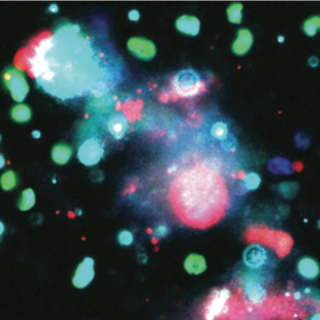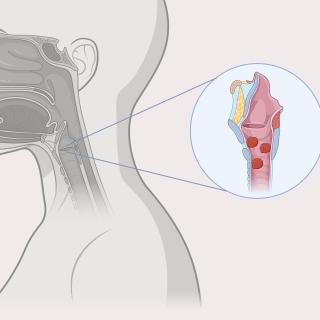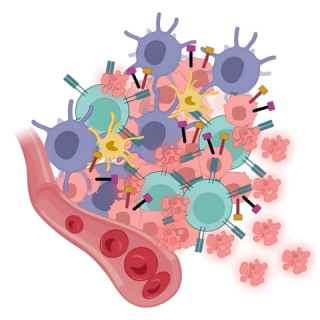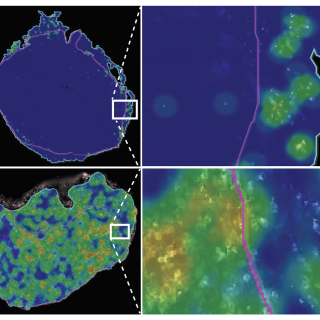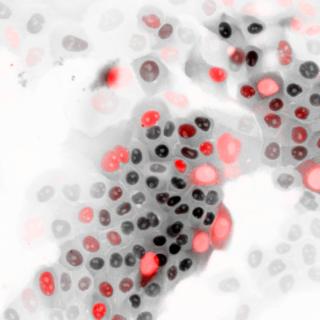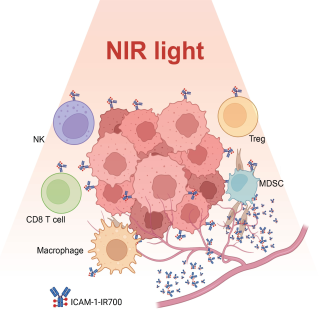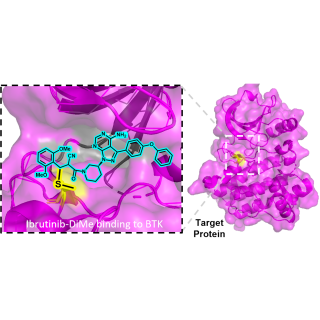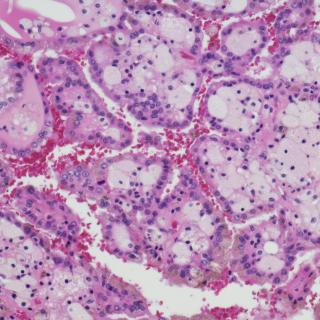Our Discoveries
New Strategy Shows Promise Against Deadly Breast Cancer in the Brain
A new NIH study points to a promising strategy for treating aggressive breast cancer that spreads to the brain, a complication with few effective options. Learn how blocking a key brain cell survival pathway could open the door to future therapies.
Read MoreProteins Released from the Nuclei of Dying Cancer Cells Promote Tumor Growth
Material released from dying cancer cells, known as tumor cell nuclear expulsion products (TuNEPs), contains specific proteins that promote the growth of neighboring cancer cells. Targeting these proteins could lead to new treatments that hinder cancer spread and improve patient outcomes.
Read MoreCCR Research Leads to FDA Approval of First Immunotherapy for Recurrent Respiratory Papillomatosis
The U.S. Food and Drug Administration has granted full market approval for Papzimeos (zopapogene imadenovec-drba), a groundbreaking non-replicating adenoviral vector-based immunotherapy designed for adult patients with recurrent respiratory papillomatosis (RRP).
Read MoreProtein makes cancer cells easier to destroy with immunotherapy
A protein called GCN1 can trigger a stress response inside cancer cells and simultaneously help them hide from the immune system. Research found these processes can be blocked by another protein called IMPACT, which could enhance immunotherapy’s ability to find and kill cancer cells.
Read MoreActivated gene elicits robust immune response in lung cancer
The activation of NOTCH1, a gene known to control cell differentiation and growth, stimulates a robust immune response in small cell lung cancer. Expression of this gene can also predict survival with immunotherapy.
Read MoreStudy uncovers new details on pulsing enzyme activity during cell cycle
Enzymatic activity during the start of the cell cycle could be harnessed to inhibit cancer cell reproduction.
Read MoreCancer Immunology Data Engine uncovers secreted proteins with therapeutic potential
CCR researchers have developed a new tool that identifies secreted proteins associated with immunotherapy outcomes.
Read MoreCCR-developed cancer therapy shrinks tumors and boosts immune response
A targeted cancer therapy developed at CCR shows promise in its ability to target a common cancer cell marker, both shrinking tumors and producing a boosted immune response.
Read MoreSynthesized chemical component helps cancer drugs remain stable in water
Researchers developed a new chemical component that can be attached to drug molecules to make them more stable in water without losing effectiveness. This innovation could improve the performance of some cancer treatments.
Read MoreCombining bevacizumab with erlotinib shrinks tumors in patients with rare and aggressive kidney cancer
Seventy-two percent of patients with HLRCC-associated kidney cancers, for which there previously was no known drug treatment, responded to the therapy in a clinical trial.
Read More
